Caryl Churchill’s Owners, the second show of the Yale Repertory Theatre season, directed by Evan Yionoulis, is an insidious play. It’s so much fun to watch—with the fabulous scenic design by Carmen Martinez that shifts magically before our eyes—that we might be lulled into forgetting how barbed it is. In Yionoulis’ take on the show, the characters don’t seem to be really appalling—well, except for Marion—and so there is much entertainment value in watching how they cope with straitened circumstances and windfall offers, with marital melt-downs, new babies, and old flames, with skullduggery and borderline thuggery. Everyone keeps the comic timing skimming along, making us chuckle . . . until the ending brings home how lethal it all it is. How callous and shallow the world these characters inhabit . . . and perpetuate.
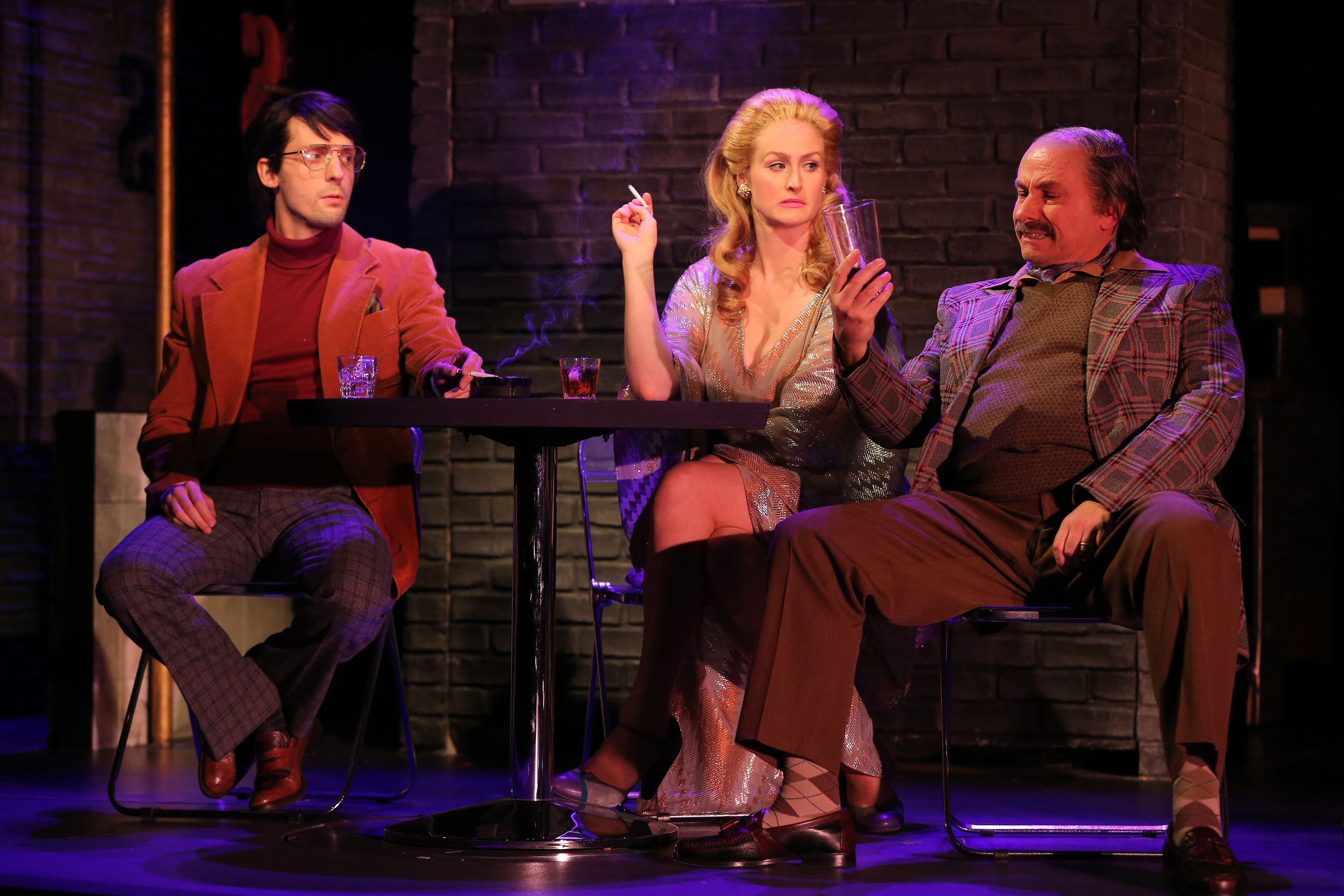
It’s Britain in the early seventies and the “owners” are taking over, a situation that we might say “resonates” with our times, though the more perceptive attitude, I think, is to see that Churchill is showing us how things began to change for the worse—all the way back then. Marion (Brenda Meaney) is the live-wire here, the rapacious woman Churchill shows us to remind us that, once in power, a woman can be as unreasoning, as blood-thirsty, as fascist as a man. It’s the other side of that great Equality demand the times were fraught with, and, in “meet the new boss, same as the old boss” fashion, indicates that the real problems lie elsewhere.
Marion wears the pants, we might say, except that her husband, Clegg (Anthony Cochrane), a butcher going out of business—and chatting to her employee Worsely (Joby Earle) about how he might do Marion in—when we first meet him, considers himself quite manly. He delivers spot on comments, common enough in those days when the ERA was being bandied about in the States, about how a man controls a woman. His idea of revenge on Alec, Marion’s old flame who he believes is back on the job, is to have sex with Alec’s wife Lisa. It’s all about ownership, you see. “She’s mine; she’s yours,” and so on.
That other couple—Alec (Tommy Schrider) and Lisa (Sarah Manton)—have kids and another on the way. They also are living, with Alec’s mum, in a flat in a building that Marion is taking over. So that precipitates a visit from Worsely to buy them out. It’s the standard practice of taking over a property, ditching the undesired (with rent-controlled leases), and soliciting the interest of the upwardly mobile—like the Arlingtons who eventually move in below. The stakes of this game are pretty clear, but it gets more complicated when Marion and Clegg take on ownership of the other couple’s new baby. It’s not quite clear why Lisa gives her child up except that she’s very distraught and a bit dim. Further complications circle around whether or not Marion can somehow take on ownership of Alec as well. And a running gag is Worsely’s attempts to kill himself, to give up ownership of what he stands up in, as he puts it.
As Clegg, Anthony Cochrane is more or less “the main character” in the sense that his rapport with Marion, from his point of view, is the only business really to be decided—that, and whether or not there will be an heir for “Clegg and Son.” In the end he still loves Marion because of a decision she makes about doing-in Alec. Peachy. Cochrane reminds me a little of Bob Hoskins combined with Jack Warden, which is a way of saying he’s a very likeable guy, in his manner, and if he’s a bully, he’s also a man trying to make do in a Man-and-woman’s World. He was in the army too, so, there you have it. He’s adaptable. And maybe even a little sentimental toward Lisa and her new baby.
As Marion, Brenda Meaney has the toughest role of the play. It’s easy to dislike her and to read all kinds of Iron Lady associations into her, but, on the other hand, she seems really to have feelings about Alec. It’s just that, as she says at the close, “I might be capable of anything. I’m just beginning to find out what is possible.” Why should Lady Macbeth have to stand behind that conscience-stricken fool she married? So then you ask yourself: what would the tragedy of such a woman be? Meaney has the perfect stature and statuesque qualities for this role. She’s commanding and powerful and, chomping chocolate bars or offering to buy Clegg a stripper, she has the same off-hand grace that says, “yes, this is my world. I’ve accepted it, what’s your problem?”
Alec, her problem, is the part that requires the most work. If his lines aren’t spoken with the right kind of Brit diction, Alec could turn into a caricature. Tommy Schrider nails it. His Alec is someone who has opted out, quasi-Bartleby-like. Not only would he rather not, he doesn’t see much point in doing or not doing. If Marion wants him to go to bed with her, he will, but there’s not much behind it. “I don’t keep,” he says. He dispatches his mum, when she’s in a coma, and the play lets you decide if that’s mercy or not. In the second part of the play, he seems to begin to accept that his wife and kids are actually a part of his life. Better late than never, we might say. And then he does something extraordinary, in the end.
Sarah Manton’s Lisa has heart and a grasp of realities, eventually. No caricature either, she could be contemptible in her useableness, but. She comes across as “woman, old school.” She’s nice and gracious to Worsely even when he barges in on her and Alec after their home has been robbed; she’s pregnant, at first, then a mother who has to abandon her baby. She’s confused and apt to cry until Marion gives her one across the face. Lisa is blonde and lithe, willing to have sex with Clegg to further her cause. Women’s wiles, you see.
Joby Earle’s Worsely is as likeable as Eric Idle always is, with that kind of self-effacing sociability that seems passively winning, but then such social graces mask that there’s something deeply wrong with Worsely. He keeps telling us this, and we see the evidence as more and more bandages bedeck his person, but it’s just a macabre gag, isn’t it? That is until we see Churchill’s point that, for every grasping villain like Marion, there are those walking dead, those moral nullities, that will do any bidding, for lack of anything better to do.
To Alex Trow falls two small but important roles: as Mrs. Arlington, she’s the well-heeled and well-meaning forces that stand above Marion. Marion worked hard in a man’s world to get something. Mrs. Arlington’s already got it. And a baby she lets the neighbors look after as she rushes to the theater. Heh. Trow is sweet in the mannered way of betters to lessers. But as Alec’s Mum, she’s a surprise. At first, given the use of mannequins, you might thing she’s one too, sitting in a chair like a piece of furniture. Then she speaks from the depths of her dementia. Then, later, she gets up, gets the kettle, attempts to make tea, all in a tour de force of muscular memory continuing beyond conscious thought. It stays with you.
About Marion and those pants—fortunately she doesn’t really wear them. We might arrive in fear of pants suits, but Seth Bodie’s costumes go for the patterned midis of the times, back when working women wanted to look like women, not business-women, which meant seeming to be on a date with life, in bold colors and big hair. Lisa, meanwhile, looks pretty much like the hippy turned hausfrau that was the outcome of the sexual revolution by the time its style trickled down. The men’s attire is flared where necessary and printed, matching or not, and Worsely, in particular, has the requisite not-quite-placeable seediness that speaks tomes.
The scene changing, on spinning sets, is fun to watch, especially as it is led-up to by “freeze frames” that work with Benjamin Ehrenreich’s lighting to create tableaux, which adds to the fun. Martinez’s sets include a nondescript butcher shop and an upscale one with blazing neon. The difference between the two says it all, as we go from post-war to posh.
See Owners if you can. This one’s really something, I’ll own.
Owners By Caryl Churchill Directed by Evan Yiounoulis
Scenic Designer: Carmen Martinez; Costume Designer: Seth Bodie; Lighting Designer: Benjamin Ehrenreich; Sound Designer: Joel Abbott; Production Dramaturg: Hugh Farrell; Vocal and Dialect Coach: Beth McGuire; Fight Director: Rick Sordelet; Casting Director: Tara Rubin; Stage Manager: Sonja Thorson
Yale Repertory Theatre October 25-November 16, 2013
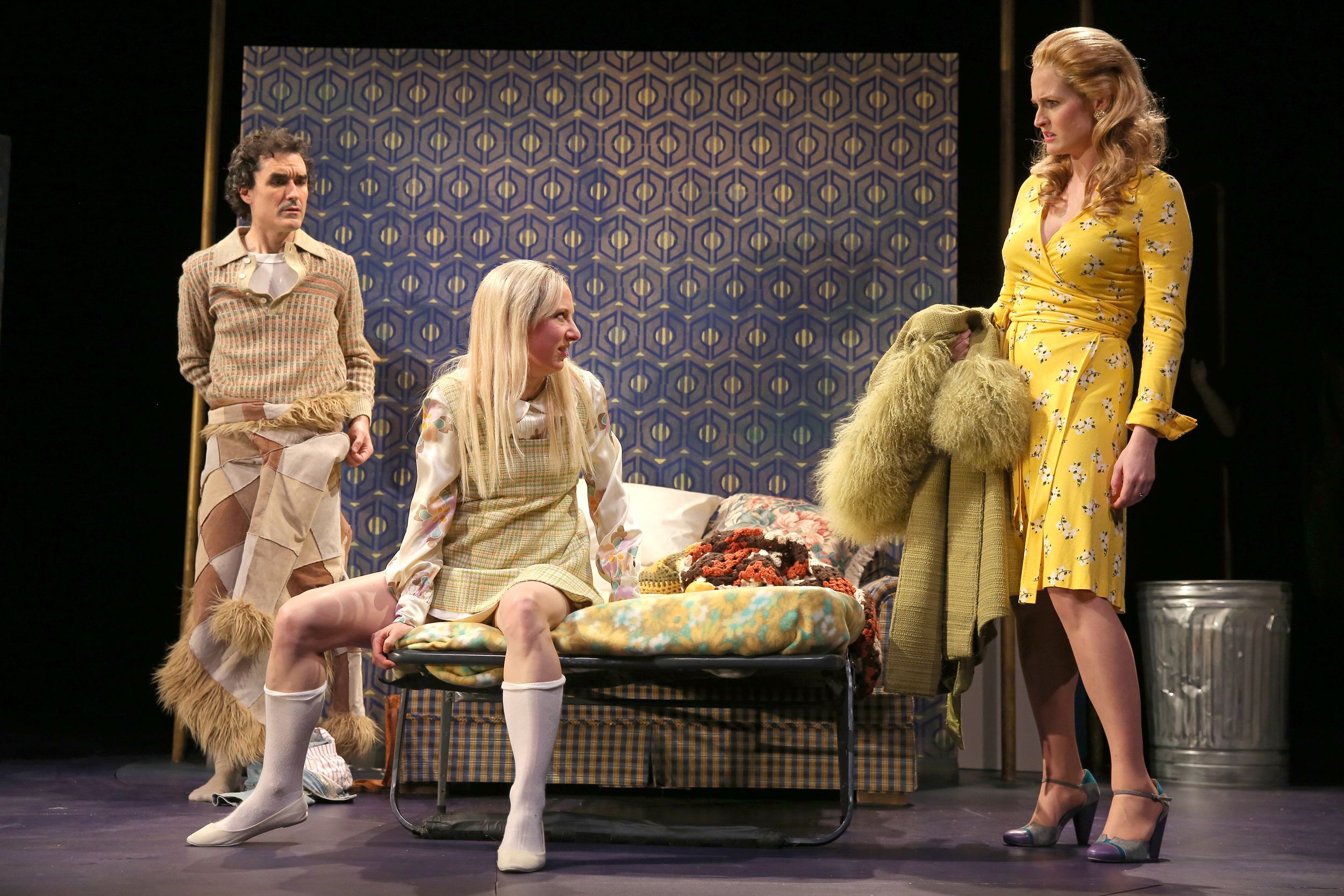
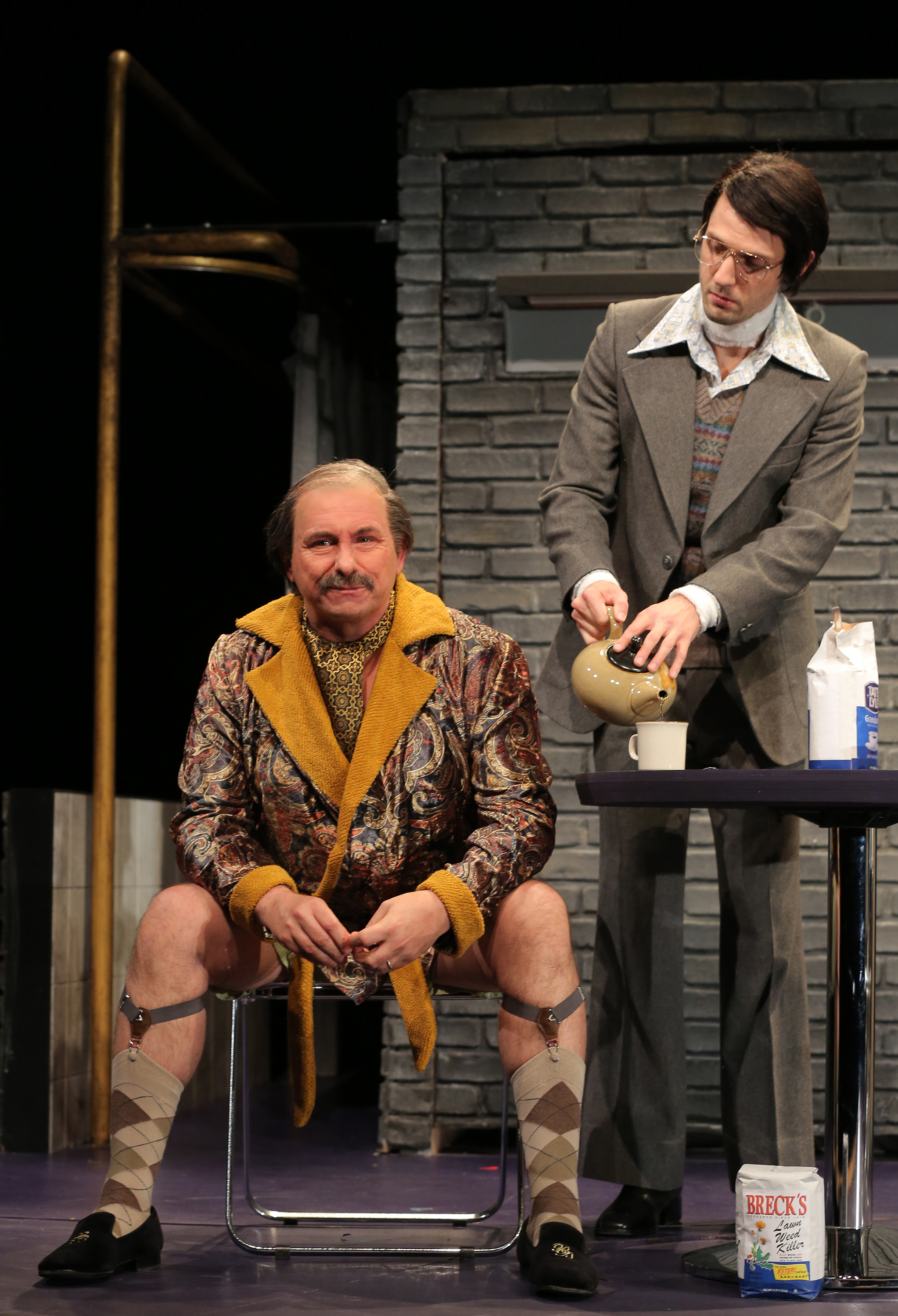




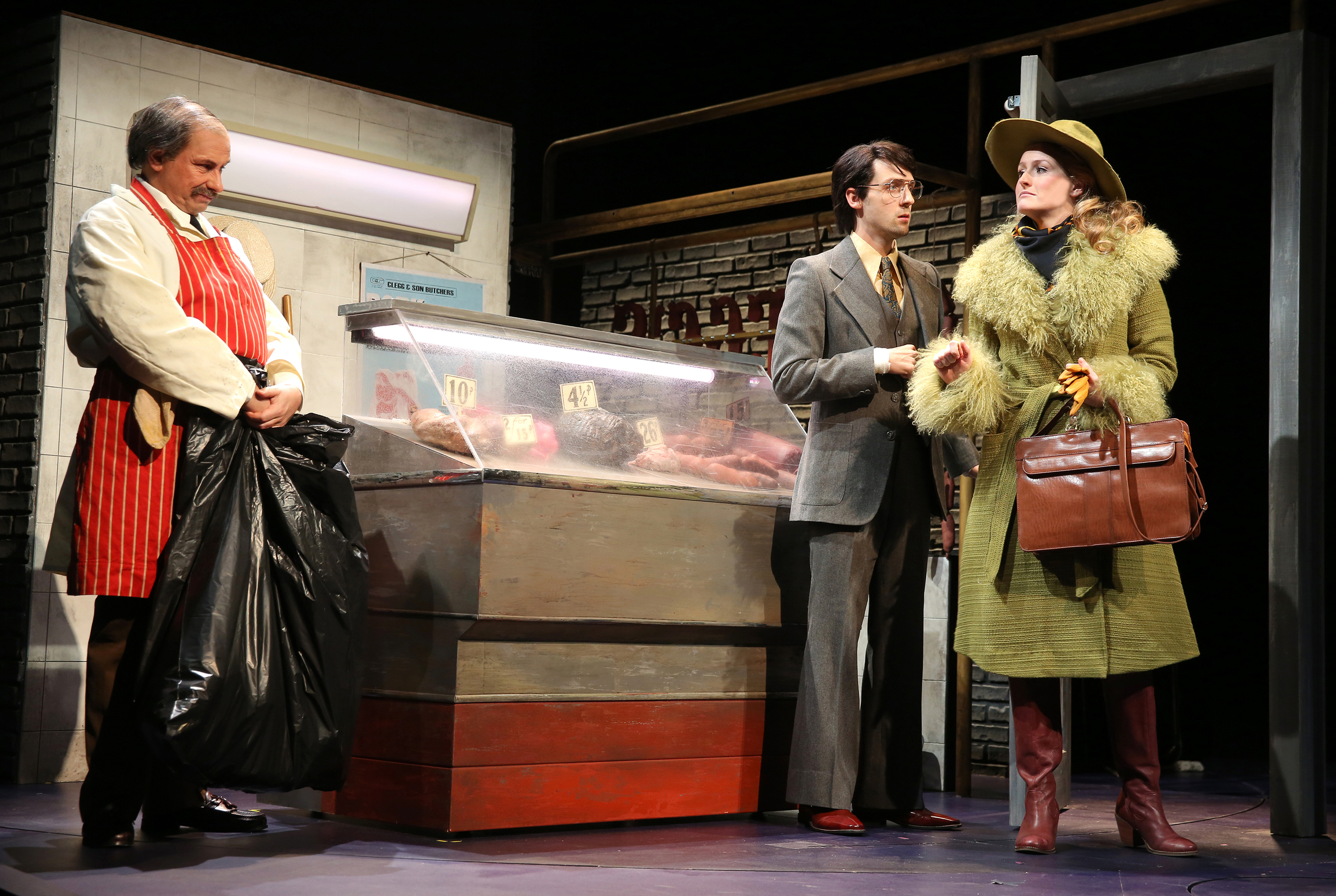
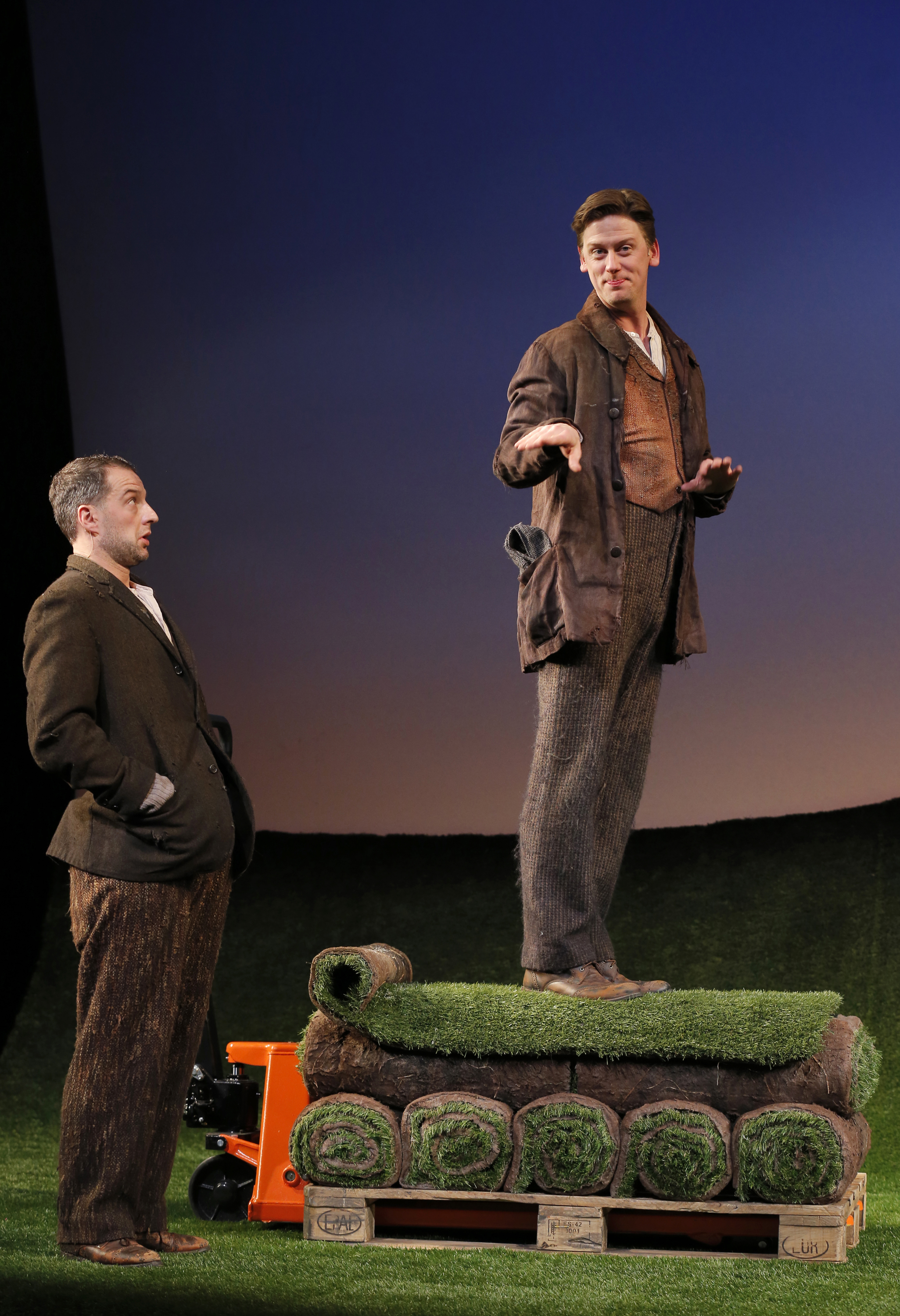

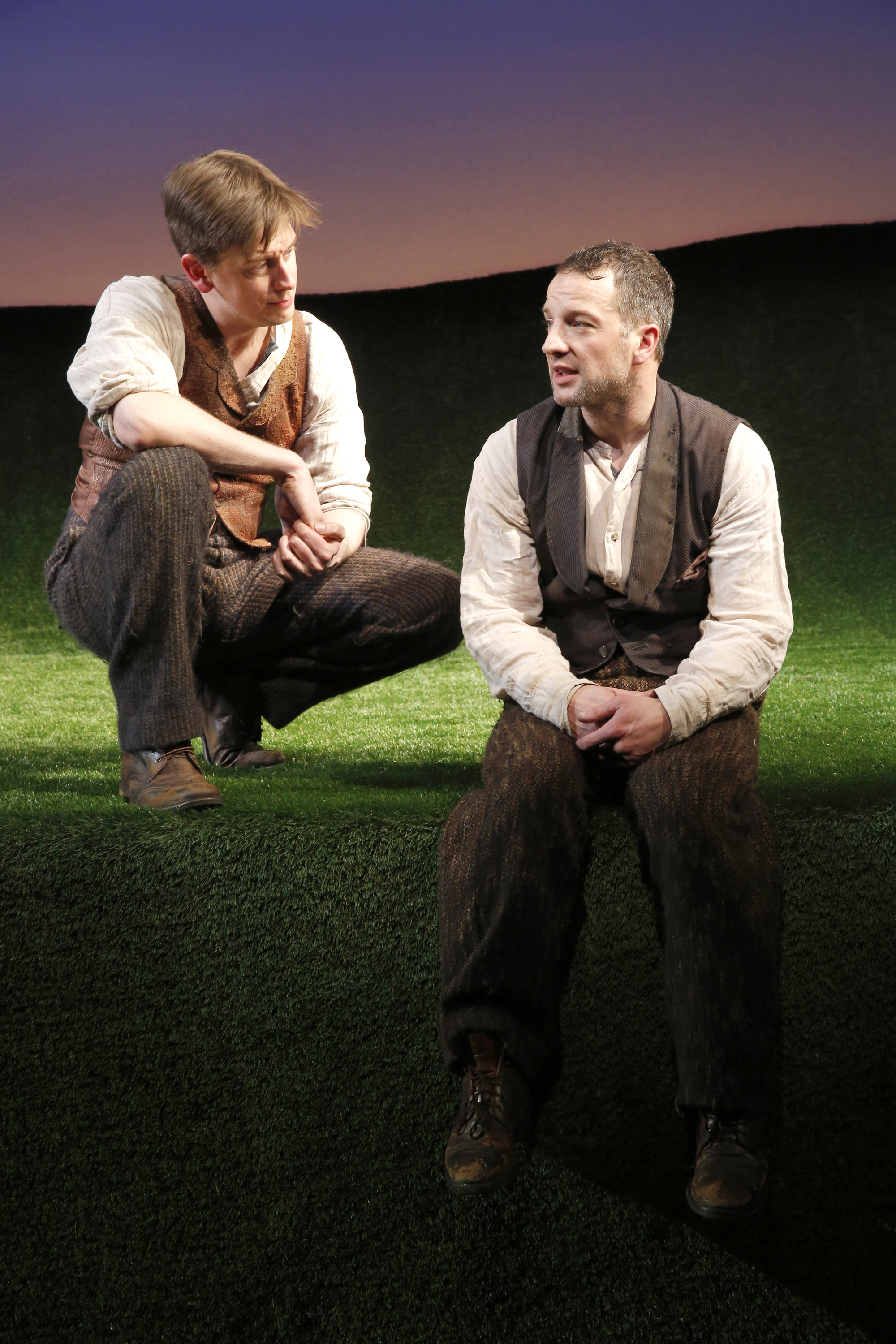
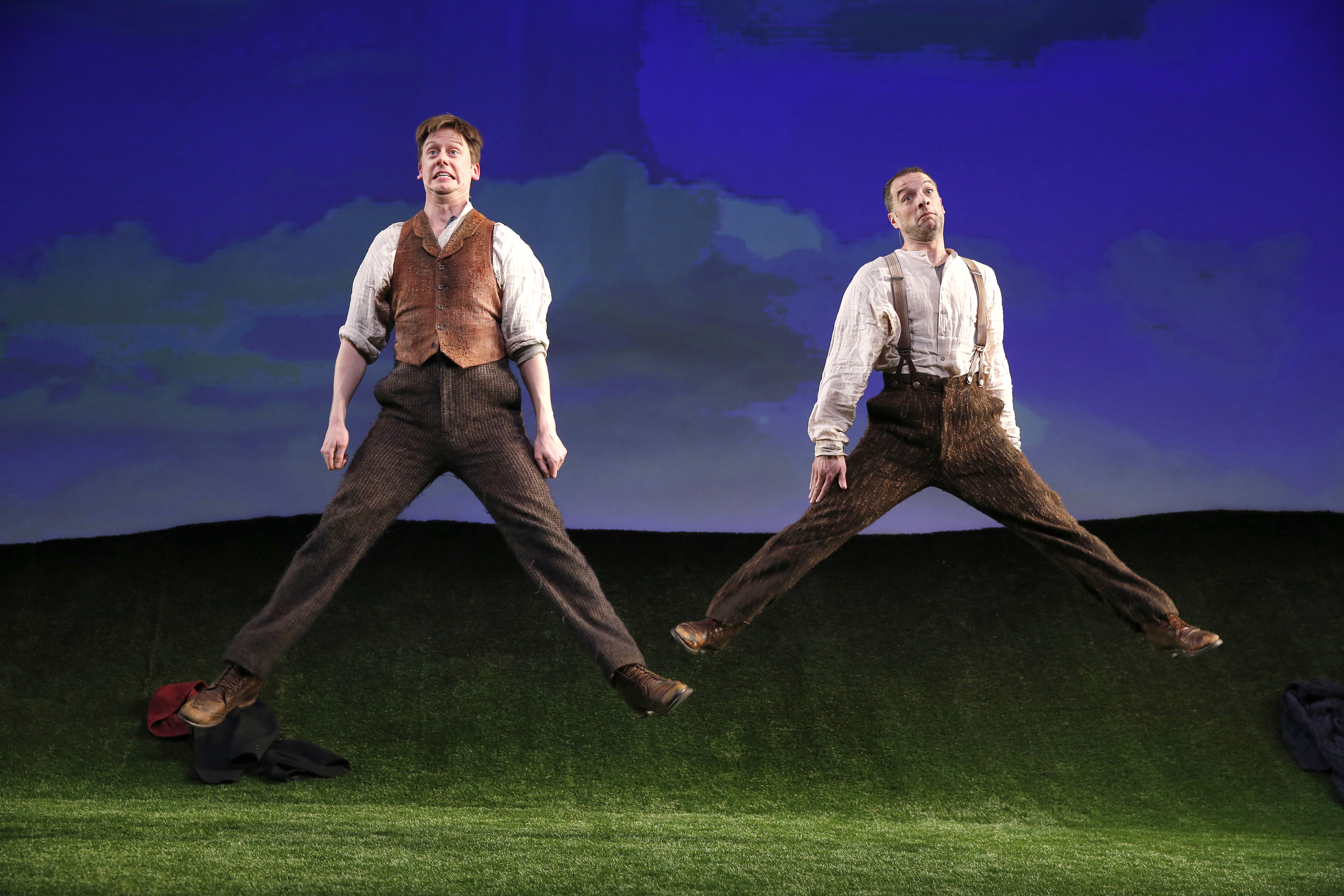
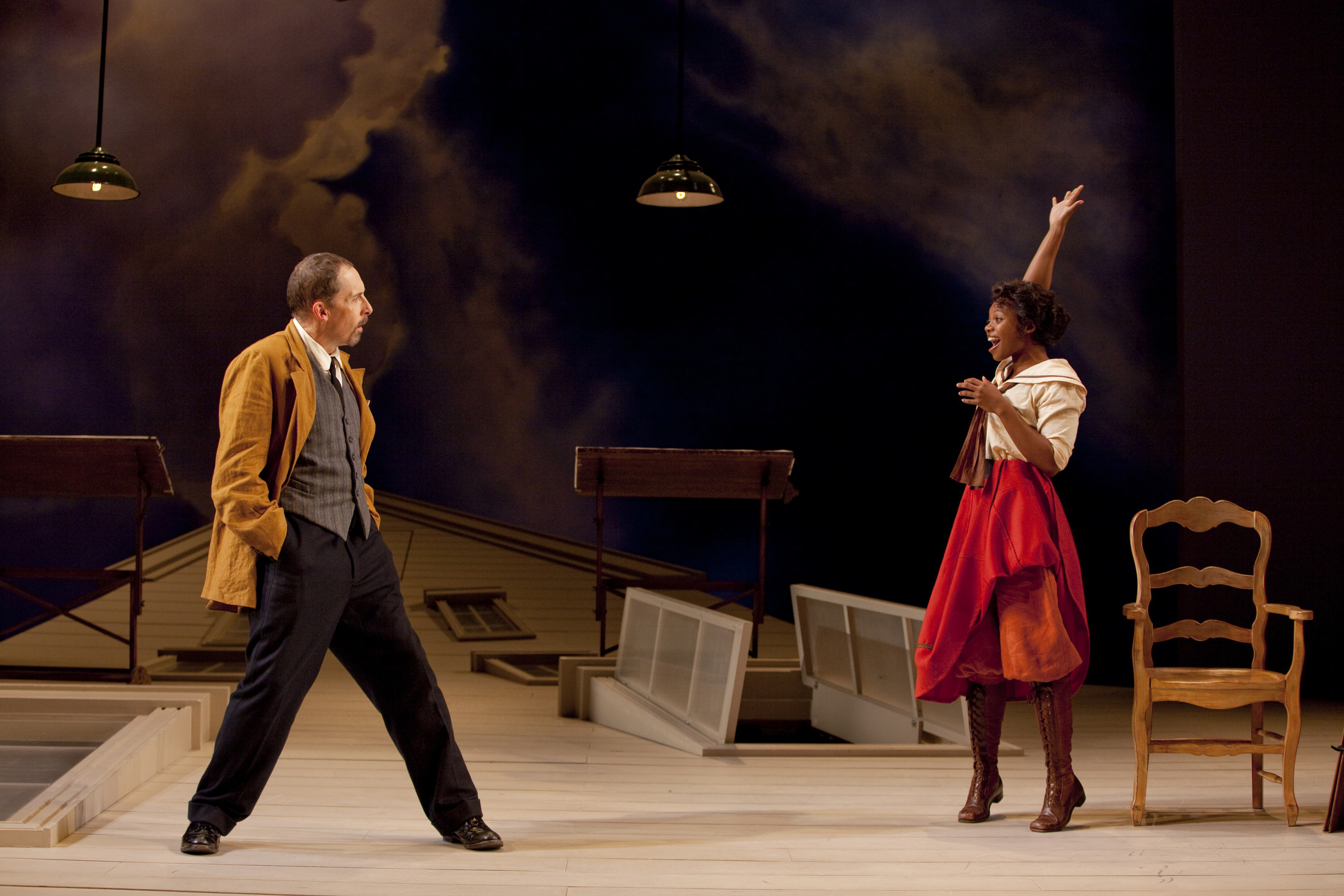 Henrik Ibsen’s dramas are classics of the theater, and his best-known plays lay bare the stultifying social mores of the late 19th century: A Doll’s House, Ghosts, Hedda Gabler. The later Ibsen, while still based in the naturalism of his main period, moves toward drama that is more symbolic, perhaps even allegorical -- dramas where the astute student of theater might see possibilities opening up for a new age of stagecraft.
Henrik Ibsen’s dramas are classics of the theater, and his best-known plays lay bare the stultifying social mores of the late 19th century: A Doll’s House, Ghosts, Hedda Gabler. The later Ibsen, while still based in the naturalism of his main period, moves toward drama that is more symbolic, perhaps even allegorical -- dramas where the astute student of theater might see possibilities opening up for a new age of stagecraft.